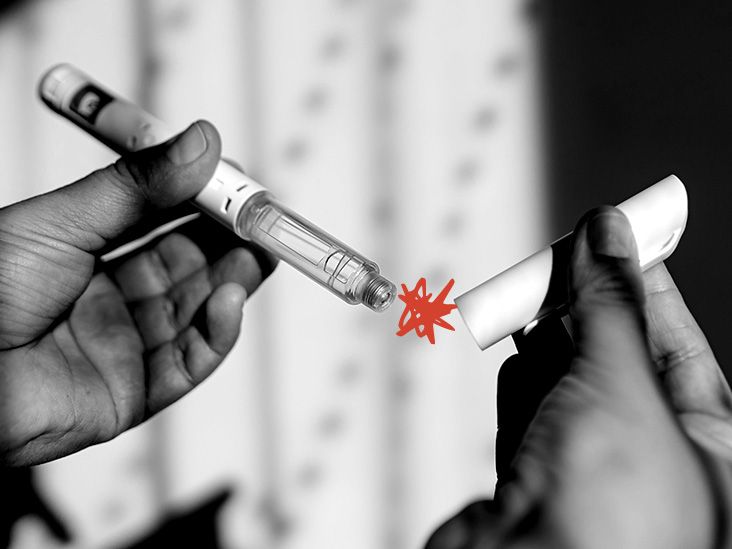Rinvoq is a brand-name drug prescribed for rheumatoid arthritis and other conditions. Rinvoq contains the active ingredient upadacitinib and may not be safe to take during pregnancy and breastfeeding.
Keep reading for specific information about reproductive health and Rinvoq. For a comprehensive look at Rinvoq, see this article.
FDA warnings
This drug has boxed warnings about the following risks. A boxed warning is the most serious warning from the Food and Drug Administration (FDA). A boxed warning alerts doctors and patients about drug effects that may be dangerous.
Risk of serious infections: Taking Rinvoq may increase the risk of serious fungal, viral, or bacterial infections. In some cases, serious infections may require hospital treatment or be life threatening.
Symptoms of a serious infection can vary depending on the specific type of infection. Examples include shortness of breath, cough, fever, and skin discoloration.
Treatment with Rinvoq may reactivate viruses, such as hepatitis B, in people who already have this virus. Rinvoq may also reactivate tuberculosis (TB) in people who already have this bacterium. (With reactivation, the virus or bacterium becomes active and causes symptoms of infection.) Because of this, your doctor will likely test you for hepatitis B and TB before starting Rinvoq. If you have hepatitis B or TB, your doctor may treat the condition before starting Rinvoq.
Talk with your doctor right away if you have symptoms of infection while taking Rinvoq. If you have a serious infection, your doctor may temporarily stop Rinvoq treatment until the infection is gone.
Risk of cancer: Rinvoq may increase the risk of certain cancers, such as lymphoma and skin cancer. Current or past smokers may have a higher risk of cancer with Rinvoq. Symptoms can vary depending on the specific type of cancer but may include fatigue, weight loss, and swollen lymph nodes. To learn more about your risk of cancer while taking Rinvoq, talk with your doctor.
Risk of blood clots: Taking Rinvoq may increase the risk of blood clots in the arteries, deep veins, or lungs. In certain cases, blood clots may be life threatening. Blood clot symptoms can vary depending on where the clot occurs but can include difficulty breathing, chest pain, and swelling or warmth in an arm or leg.
If you have symptoms of a blood clot while taking Rinvoq, talk with your doctor right away. They’ll likely recommend you stop taking the drug and seek treatment. However, if your symptoms seem severe or life threatening, call 911 or a local emergency number.
Risk of cardiovascular problems: There’s an increased risk of cardiovascular problems, such as stroke and heart attack, with Rinvoq. A current or past history of smoking increases the risk of cardiovascular problems with Rinvoq.
Some symptoms of heart attack can include nausea, chest pain, and shortness of breath. Symptoms of stroke may include confusion, headache, and numbness on one side of your body.
If you have symptoms of a stroke or heart attack while taking Rinvoq, call 911 or a local emergency number. Your doctor will likely recommend you stop taking Rinvoq.
Risk of death: Taking Rinvoq may increase the risk of death for certain people with heart-related factors, such as an irregular heart rhythm. However, there were no reports of death in Rinvoq’s clinical trials. Your doctor can talk with you about your risk factors. They’ll recommend whether Rinvoq is a safe treatment option.
For more information about these warnings, talk with your doctor.
Show MoreIf you can become pregnant, it’s important to consider whether Rinvoq is a safe choice for you.
Rinvoq treatment is not recommended during pregnancy. Based on animal studies, it is possible that Rinvoq could cause harm to a fetus. However, animal studies do not always predict what will happen in humans.
People who can become pregnant should use birth control during Rinvoq treatment and for at least 4 weeks after their last dose.
Your doctor may ask you to take a pregnancy test before starting Rinvoq treatment. Talk with your doctor if you’re pregnant or are planning to become pregnant during Rinvoq treatment. They may suggest a different treatment for your condition.
If you’re breastfeeding or planning to do so, it’s important to consider how Rinvoq may affect you or a child who is breastfed.
Breastfeeding is not recommended during Rinvoq treatment or for at least 6 days after your last dose. Animal studies show that the drug may pass into breast milk. However, animal studies don’t always predict what will happen in humans.
If you’re currently breastfeeding, talk with your doctor about the best way to feed your child during your Rinvoq treatment.
Rinvoq is not recommended to take during pregnancy. If you’re sexually active and you or your partner can become pregnant, talk with your doctor about your birth control options while you’re taking Rinvoq.
People who can become pregnant should use birth control during Rinvoq treatment and for at least 4 weeks after their last dose.
Disclaimer: Medical News Today has made every effort to make certain that all information is factually correct, comprehensive, and up to date. However, this article should not be used as a substitute for the knowledge and expertise of a licensed healthcare professional. You should always consult your doctor or another healthcare professional before taking any medication. The drug information contained herein is subject to change and is not intended to cover all possible uses, directions, precautions, warnings, drug interactions, allergic reactions, or adverse effects. The absence of warnings or other information for a given drug does not indicate that the drug or drug combination is safe, effective, or appropriate for all patients or all specific uses.


